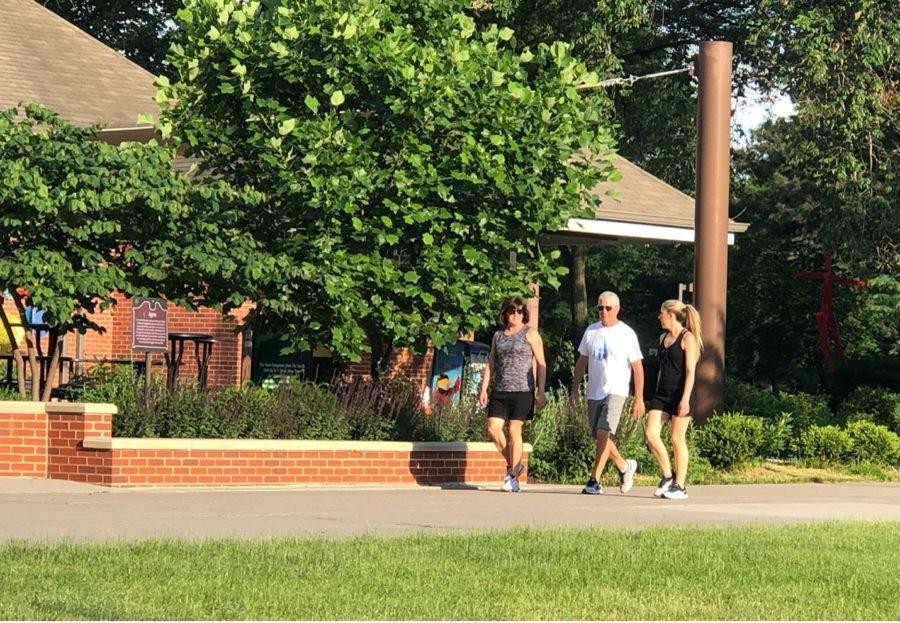The future of masks
June 13, 2021
After over a year of social isolation with health and wellness constantly on everyone’s minds, the pandemic is starting to wind down in the U.S. as the rate of fully vaccinated individuals rises daily. The amount of fully vaccinated people in the U.S. averages currently at about 42.5 percent of the total population, according to the Centers for Disease Control and Prevention (CDC), which begs the question of when masks will start to disappear from communities.
In Ames and at Iowa State, mask mandates have been lifted for a few weeks following guidance from the CDC stating fully vaccinated individuals can resume doing activities they did prior to the pandemic without masks. Although the ordinances have been removed, not everyone is eager to take the masks off just yet.
Zoey Welter, junior in biology at Iowa State, felt that masks never affected her negatively, and she was happy to wear them to keep others around her safe. She believes in the future, if there is a known sickness spreading or during flu season, she would want to continue wearing her mask.
“I am definitely not against it because I think it is actually a really good idea,” Welter said. “I know I didn’t get sick by anything. Granted, I didn’t really go anywhere, but that would also be during any other time, so I think it is a good idea to keep wearing them for that.”
Welter expressed that she is excited for life to start looking more normal again, but this is not without concerns for the health and safety for everyone, both vaccinated and not vaccinated.
“I’m vaccinated. If you’re not, that’s a ‘you’-problem, but at the same time, it’s a ‘me’-problem because some people can’t be vaccinated, so I want to be excited because I feel like I have done my part wearing it for this whole time, but [the pandemic] isn’t over yet,” Welter said.
In a country where wearing masks to avoid getting sick in public was never normalized, ever since the coronavirus pandemic, original viewpoints about the practicability of masks have changed for many Americans. Regarding recent legislation passed by Iowa Gov. Kim Reynolds that banned the enforcement of mask mandates, professor of political science David Peterson wishes he still had the ability to require masks in his office to avoid any sicknesses in general.
“I’ve got somebody in my household who will be taking a drug in the fall that makes her immunocompromised, and so we would prefer to do everything we can to try to not bring any illness into the household,” Peterson said. “It’s not just COVID, we are both COVID vaccinated, so that is not the only concern.”
Peterson said when more sicknesses arise such as strep or the flu, it would be nice to have the ability to require the visitors in his office to wear masks to avoid spreading those illnesses to the people in his home. He has decided to wear his mask in the classroom in the fall and is not worried about students not wearing masks due to effective distancing, verses in a smaller office where space is limited.
With the next semester approaching in the fall, the university is expecting that classes and campus will operate as usual without the need for masks anymore. As Peterson mentioned, he plans to wear a mask even when teaching in person, and he expects that the majority of students will choose not to wear masks now that it is not required for fully vaccinated individuals. But the most significant thought he recognized was that many people are going to be more cautious when a known illness is spreading.
“I think a lot of us will pay a little more attention to if there are cold and flu outbreaks going on, we’re much more likely to wear masks than we would have been before,” Peterson said.
Wearing masks to help curb the spread of sickness during the winter and cold seasons may seem like a newer concept to Americans, but in China, individuals would sometimes wear masks during these times before the inception of coronavirus. It makes sense that since the U.S. has recently experienced the effects of a global pandemic, citizens would start to appreciate the usefulness of masks and use them to their advantage during these periods of high contagion.
The future of masks in the U.S. does seem to be up in the air, but with the long-lasting cultural effects of COVID-19, many are starting to realize the effectiveness of masks and taking the necessary precautions to avoid any sicknesses.







